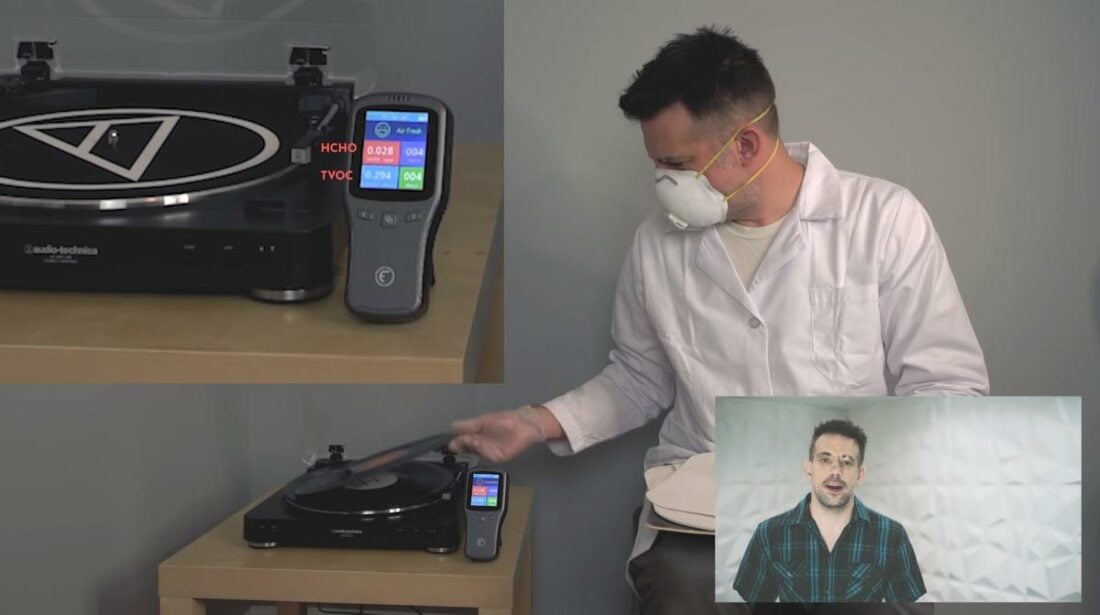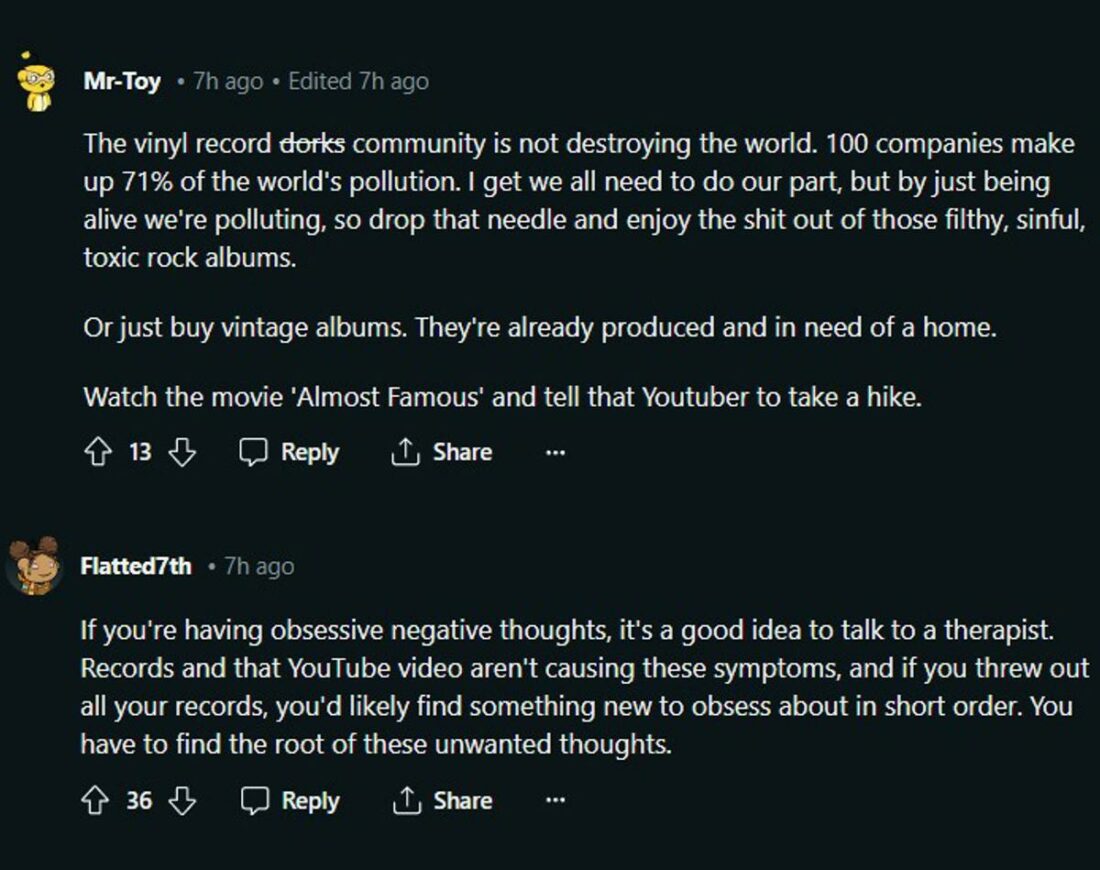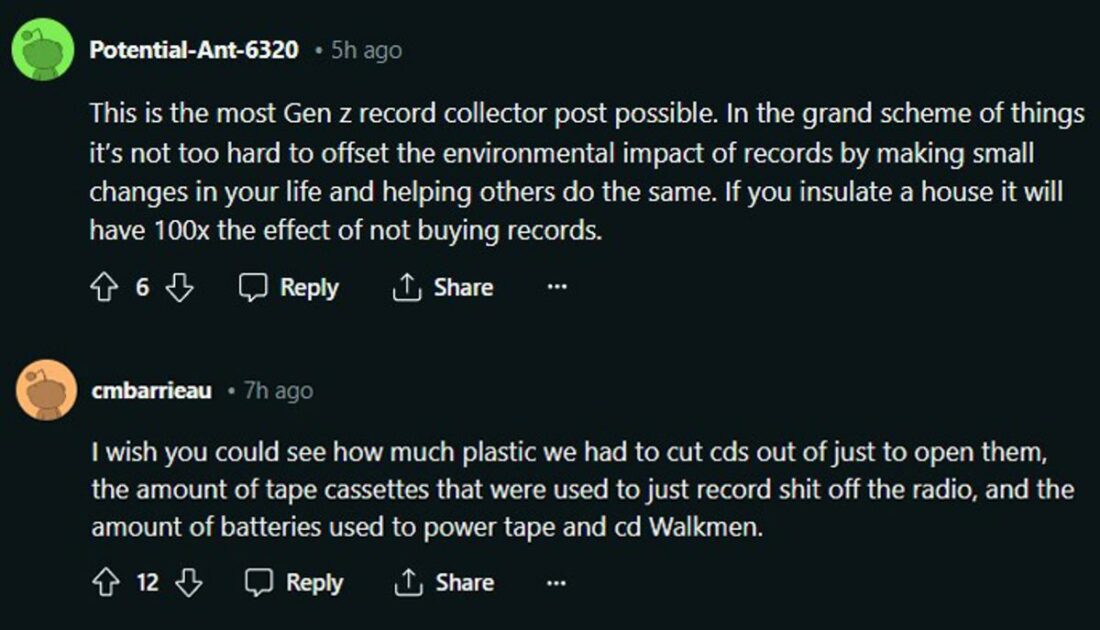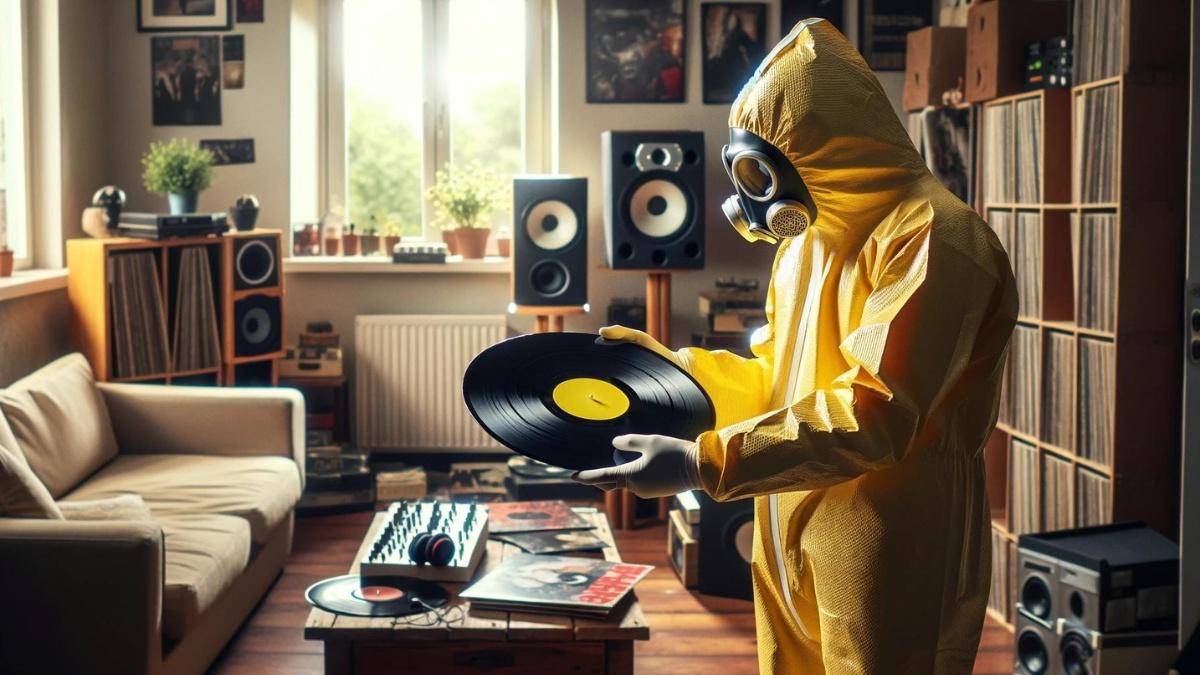The link between PVC and cancer has this vinyl collector rethinking his hobby.
A 17-year-old vinyl enthusiast, known online as TheBlev6969, who owns about 200 LPs and a DP-47F turntable equipped with an AT PTG-33 cartridge, explained how his view on vinyl changed after seeing Benn Jordan’s video. This video discussed the possible environmental and health risks caused by using vinyl records, especially considering the microplastics that get carried around the air whenever a vinyl record gets played.
The Plight of a Young Vinyl Collector
In the video, Jordan, an electronic musician, points out the chemical hazards of vinyl records. Here, he notes lead exposure and harmful air pollutants called volatile organic compounds (VOCs).
The artist conducted a home experiment using an industrial-grade air quality monitor to measure harmful substances released by vinyl records. His findings showed that playing vinyl records raised VOC levels enough to set off the monitor’s warnings.

After seeing this, the teen audiophile, TheBlev6969, shared his inner conflict:
His worry has gotten to the point where even keeping his beloved LPs in his room causes him stress.
Jordan’s video also challenges the idea that vinyl is better for its nostalgia and sound quality. He cites research and his own experiences to argue that digital music sounds better and doesn’t have the health risks that vinyl does.
A Closer Look at Jordan’s Vinyl Experiment
Jordan’s experiment involved using a high-quality air monitor to detect small particles and gasses released by vinyl, whether being played or sitting idle.
He set up a new record player in an almost empty room to ensure nothing else would affect the test. Then, after waiting 32 hours to let the room’s air stabilize, he brought in his collection of vinyl records.

The results were surprising. By playing some records, the air monitor showed a big jump in harmful gasses, including formaldehyde. At one point, the monitor started beeping to warn that the air was unsafe.
Jordan thought this might happen because of “degassing,” where the vinyl gives off gasses it’s been holding onto. This suggests that just having vinyl records in a room could slowly worsen the air.
Although the test wasn’t peer-reviewed, it raises questions about the safety of vinyl and suggests we need more research to understand the risks.
Examining the Link Between Cancer and PVC Exposure
Jordan’s analysis emphasizes the potential dangers of polyvinyl chloride (PVC), the main component in vinyl records, and its link to various forms of cancer, including liver, brain, lung, and breast cancer.
This narrative is not just anecdotal but is supported by scientific research. A study found that workers exposed to PVC dust from vinyl had a 20% higher risk of lung cancer each year of exposure to the breathable particles.
However, it’s important to note the difference in PVC exposure between workers and record listeners.
Workers naturally face a more dangerous level of exposure compared to someone who listens to their records a few times a week. This distinction is meant to show that there is indeed a correlation between PVC exposure and an increased risk of cancer.
Divided Reactions Bring Solutions and Skepticism
The reaction to TheBlev6969’s post varied from helpful tips to disbelief. Some Redditors, like Junkman3, suggested a proactive approach to reducing personal impact on the planet:
Others went as far as to suggest therapy to address “obsessive thoughts.”

However, some doubted the seriousness of the concerns.
VicFontaineHologram countered, suggesting that the video’s claims are overstated:
Similarly, iehcjdieicc dismissed the Jordan’s warnings outright, stating:
Despite different views, some people agreed with Jordan, recognizing the sincerity of his message.
Jonistaken noted:

Despite the debate, certain community members continued to defend their vinyl collections.
PVC-Free Vinyl Offers Hope
Amid this heated discussion, the introduction of PVC-free vinyl presents a potential solution for music fans and environmentally conscious individuals.

Evovinyl, crafted by Evolution Music Ltd, is the first bioplastic vinyl record and a greener alternative to the classic PVC records.
The innovative vinyl is made from renewable materials like sugars and starches, skipping the petrochemicals central to PVC.
Evovinyl brings a solution that preserves the beloved sound and feel of vinyl. Early tests of this new material are encouraging. Some record-pressing plants say they’re saving energy and making records faster due to the lower heat required for Evovinyl. Importantly, producing Evovinyl doesn’t generate harmful waste, making it more sustainable.
With support from companies like PMC, this development could signal a shift towards a more environmentally sustainable future for vinyl.
